Recherche avancée

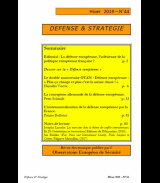 |
Double anniversaire OTAN - défense européenne: « Plus ça change et plus c’est la même chose ! »
Défense & Stratégie n°44, hiver 2019, pp.6-32
30 mars, 2020
Extrait: "Derrière les beaux discours sur « l’autonomie stratégique », la mise en œuvre oppose, comme toujours, le gaullisme résiduel de Paris à l’opinion majoritaire des partenaires qui tiennent à préserver, littéralement à tout prix, la primauté de l’Alliance atlantique. Jusqu’ici rien de nouveau. Sauf que la position française oscille – au pire moment, lorsque tous les événements la confortent pourtant – entre deux approches. Entre « intransigeance sur les principes » et « composer avec le réel », elle espère pouvoir ménager la chèvre et le chou. Autrement dit : avancer vers l’objectif d’émancipation européenne sans trop heurter le tropisme atlantiste-otanien de ses partenaires de l’UE – ce qui équivaut à la quadrature du cercle. Cette démarche a conduit à une extraordinaire confusion dans le discours du président Macron à l’Ecole de Guerre en février 2020, où il a réussi à placer dans un même paragraphe les deux visions antinomiques. D’un côté, il parle de « cette Europe de la défense, ce pilier européen au sein de l’OTAN », de l’autre il met les deux sur un pied d’égalité :« l’OTAN et l’Europe de la défense sont les deux piliers de la sécurité collective européenne » Tôt ou tard, il faudra choisir..."
|
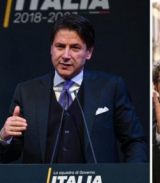 |
Gouvernement « populiste » en Italie : catastrophe ou catalyseur utile ?
Foreign Policy Research Institute
21 juin, 2018
L’entrée en fonction du nouveau gouvernement italien fut accueillie, dans les milieux financiers, médiatiques et par la plupart des dirigeants européens avec un mélange d’inquiétude et d’indignation. Comment l’Italie, un des pays fondateurs de l’Union, son lieu de naissance de par le traité de Rome, a-t-elle pu porter au pouvoir des forces eurosceptiques, antisystème, susceptibles de mettre en péril l’euro, et de créer des tensions sans précédent au sein de l'UE ?
|
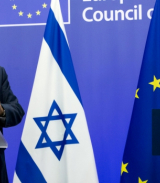 |
Jérusalem : le président Trump met au défi les réflexes « pavloviens » des Européens
Foreign Policy Research Institute
18 mai, 2018
Avec la reconnaissance de Jérusalem comme capitale d’Israël et la décision d’y transférer l’ambassade US, le président Trump a fait un premier pas pour briser l’un des réflexes les mieux ancrés des Européens. Car, comme l’avait remarqué l’ancien commissaire européen Chris Patten, sur le dossier proche-oriental en particulier « le principal déterminant du comportement politique de l'Europe » a été jusqu’ici « le refus pavlovien de toute ligne de conduite qui pourrait éloigner l'Europe des Américains ».
|
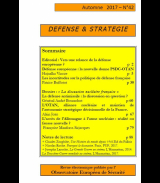 |
Défense européenne : la nouvelle donne PSDC-OTAN
Défense & Stratégie, Automne 2017, n°42, pp. 5-29
05 déc, 2017
Les turbulences dans le ciel européen et transatlantique durant l’année qui vient de s’écouler n’ont évidemment pas été sans incidence sur la cohabitation entre la Politique de sécurité et de défense commune (PSDC) de l’Union Européenne (UE) et l’Alliance atlantique. Les langues se délient, les initiatives se multiplient, de nouvelles perspectives semblent s’ouvrir et provoquent des contrecoups puissants. Quoi qu’il en soit, l’issue va dépendre, une fois de plus, des choix et de la détermination de la France.
|
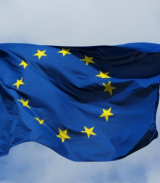 |
Drapeau européen : symbole d’une « allégeance » ou d’un « lien »?
Notes d’actualité, 30 nov, 2017
Au sommet de mi-octobre de l’UE à Bruxelles, le président Macron s’est associé à la Déclaration n°52, dix ans après l’adoption du traité de Lisbonne où la France avait décidé de ne pas signer ladite déclaration.[1] Si le chef de l'Etat a fait le choix de revenir sur cette décision aujourd'hui, c’est avant tout en réponse à l’appel du leader de la France Insoumise, Jean-Luc Mélenchon, qui réclamait le retrait du drapeau européen à l’Assemblée nationale. Certes, la Déclaration n’est pas légalement contraignante, mais sa signature n’en devrait pas moins affirmer, d’après le Président,[2] « l’attachement » de la France aux symboles de la construction européenne. Sauf que la nature de cet attachement peut être très différente selon que l’on se réfère à la version française ou anglaise du texte originel.
|
 |
Le numéro d'équilibriste du président Macron
Lecture at the Princeton Committee of FPRI
26 oct, 2017
Au cours des cinq prochaines années, le principal défi dans le domaine intérieur sera le sentiment d'aliénation dont souffre une écrasante majorité de la population. Il vient d’un côté de la fracture entre gagnants et perdants de la globalisation et, de l’autre, des réactions face à ce qui est largement perçu comme une présence de plus en plus vindicative de l’islam sur le territoire national. Sur le plan européen, il existe, certes, une fenêtre d'opportunité sans précédent pour le projet d’une Europe protectrice, stratégique et autonome, défendu par la France depuis toujours, mais la seule solution pour y parvenir reste la mise en œuvre, enfin, de l’intégration à géométrie variable.
|
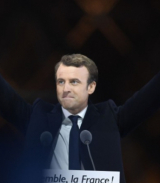 |
La France du président Macron : avis de tempête à l’intérieur et croisée des chemins à l’extérieur
Foreign Policy Research Institute, E-Notes
10 mai, 2017
« On ne sort de l'ambiguïté qu'à son détriment », cette maxime souvent répétée par l’ancien président François Mitterrand sonne comme une mise en garde prémonitoire au lendemain de l’élection d’Emmanuel Macron en France. En effet, les inévitables clarifications risquent d’être particulièrement compliquées pour un président dont la tournure « mais en même temps » est devenu comme une marque de fabrique de sa campagne.
|
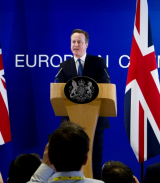 |
Le statut très spécial du Royaume-Uni
Note IVERIS
23 févr, 2016
A l’issue du sommet de l’UE des 18-19 février, destiné à trouver un arrangement qui satisfasse les exigences posées par Londres, en vue du référendum sur la sortie britannique de l’Union, le Premier ministre Cameron s’est targué d’avoir arraché un accord qui « allait donner un statut spécial » au Royaume-Uni. Au même moment, le président français a rappelé que, de par ses nombreuses exemptions, l’Angleterre « a toujours eu une place particulière en Europe ». C’est exact. Toutefois, la vraie spécificité des Britanniques à l’intérieur de l’UE aujourd’hui réside dans la prédominance idéologique de leur ligne résolument atlantiste et libre-échangiste.
|
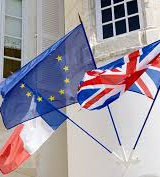 |
Au-delà de la question du Brexit
Note IVERIS
18 févr, 2016
En 1975, au moment du premier référendum britannique sur la question de savoir si l’Angleterre devait rester ou pas dans ce qui était alors les Communautés européennes, une caricature du Canard enchaîné dessina le Premier ministre Harold Wilson au lit, sur une Europa manifestement ennuyée qui l’implorait : « Entrez ou sortez, mon cher Wilson, mais cessez ce va-et-vient ridicule ». C’était il y a plus de quarante ans… Quatre décennies durant lesquelles l’Angleterre a soigneusement gardé sa position « semi-détachée de l’Europe », pour citer l’ancien Commissaire britannique, Chris Patten...
|
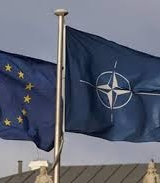 |
UE-OTAN, la petite différence
Note IVERIS
07 nov, 2015
Patrick Keller, coordinateur pour la politique étrangère et de sécurité de la Fondation Adenauer, oppose d’une part la vitesse à laquelle l’OTAN s’est adaptée à la nouvelle donne sécuritaire issue de la crise en Ukraine, d’autre part l’inertie de l’UE qui, elle, ne s’y est toujours pas adaptée. Un constat qui mérite que l’on s’y arrête.
|
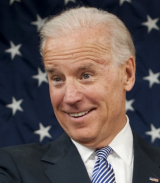 |
Joe le Sniper sur l'arrière-fond des sanctions européennes contre la Russie
Brèves, 10 oct, 2014
Le vice-président (VP) américain, fidèle à sa réputation de franc-parleur/gaffeur invétéré, a donc récemment admis (le 2 octobre, à l’université de Harvard) que c’est sous la pression des Etats-Unis que l’UE avait fini par adopter les sanctions contre la Russie. Ou comme dit l’inimitable Biden : « c’est vrai qu’ils ne voulaient pas le faire », « mais encore une fois, c’est le président des Etats-Unis qui a dû insister » auprès des Européens.
|
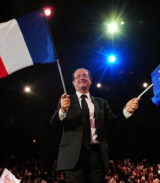 |
L’Europe du Président Hollande
Notes d’actualité, 16 mai, 2014
La tribune du chef de l’Etat à l’occasion de l’anniversaire de la fin de la Seconde guerre mondiale en Europe (et à quinze jours des élections européennes) laisse doublement à désirer. D’une part le raisonnement qui y est exposé manque parfois de cohérence. De l’autre, il ne va pas jusqu’au bout de la partie non-exposée de son raisonnement.
|
 |
Crise ukrainienne : petite mise au point préalable
Notes d’actualité, 03 mars, 2014
C'est ce qui s'appelle un timing parfait. Une mission d’information de l’Assemblée nationale vient de présenter les résultats de ses travaux au sujet de « la politique française et européenne vis-à-vis de la Russie ». Voici quelques extraits relatifs à l’Ukraine, tirés du Rapport d’information, et de l’audition des auteurs (Chantal Guittet et Thierry Mariani) qui s’en est suivie. En y ajoutant, sans surprise, une petite touche transatlantique.
|
 |
Petites perles de la semaine écoulée (3 novembre 2013) - compilation des entrées Google+
Brèves, 03 nov, 2013
NSA/Europe
1. Berlin, nid d’espions US. Visiblement, la Chancelière devient susceptible quand on touche à son portable. Pour rappel : jusqu’à la nouvelle que son « instrument de puissance » favori pourrait être surveillé par la NSA, Mme Merkel avait fait profil bas. Elle ne s’était pas offusquée outre mesure en apprenant cet été que ses compatriotes furent massivement écoutés par les services US, ni ne s’était montrée vraiment compatissante quand son partenaire français s’offusquait il y a une semaine. Mais tout ça, c’était avant l’affaire du portable. Depuis, elle n’arrête pas de s’indigner à tout va. Compte tenu des dernières précisions, elle aura encore de quoi.
|
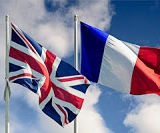 |
Identité européenne: un « malentendu » vieux de quarante ans
Notes d’actualité, 24 aout, 2013
En attendant le sommet « Défense » du décembre prochain, rappelons d’abord un seul petit mot traduit de travers il y a quarante ans, et qui est plus révélateur que des centaines de pages d’études et d’analyses pour expliquer l’impasse de l’Europe de la Défense (et, avec elle, l’impossible émancipation de notre continent).
|
 |
Lectures de la semaine (4 août 2013)
Brèves, 03 aout, 2013
Le Service européen d'action extérieure (SEAE) vient d'apporter à son tour une première pierre au sommet « Défense » de décembre. Notamment sous la forme d’un rapport, intitulé « Révision stratégique », sur sa propre organisation et fonctionnement.
|
 |
La Commission s'immisce dans les affaires d'armement
Notes d’actualité, 29 juil, 2013
En proposant, le 24 juillet dernier, un plan d’action « visant à accroître l’efficacité et la compétitivité du secteur de la défense », La Commission européenne n’en est pas à son premier essai. Notamment pour se mêler de ce qui ne fut pourtant jamais censé être ses affaires.
|
 |
L'Europe face à un monde multipolaire en déséquilibre
The Federalist Year LI, 2009
07 mars, 2009
La place de l’Europe est loin d’être assurée sur l’échiquier géopolitique, actuellement en pleine reconfiguration. Pourtant, cela fait déjà un bon moment que les évolutions en cours sont amorcées et que les grandes lignes de ces mutations se dessinent de manière plutôt limpide. Ce que l’on désignait, au lendemain de la disparition de l’Union soviétique, comme « le moment unipolaire » touche inexorablement à sa fin, n’en déplaisent à ceux qui voulaient, et pour certains voudraient encore, y placer tous leurs espoirs. Les Etats-Unis, toujours soucieux de maintenir leur leadership dans les affaires de la planète, ont été longtemps agacés d’entendre parler de « monde multipolaire ». Ils y voyaient l’expression codée d’un complot anti-américain. Auquel agacement les responsables européens, en particulier français, n’avait de cesse de rétorquer qu’il s’agissait non point d’un projet, mais d’un constat tout simple.
|
 |
L'avant-garde européenne : diagnostic, remède, raison d être
Intervention aux Assises des Associations d'Europe
28 sept, 2007
La réflexion qui suit se propose de partir d’un diagnostic (celui de l’impasse), elle se poursuit en identifiant le remède (projet d’avant-garde), pour se clore par l’évocation de la raison d’être de toute initiative européenne digne de ce nom (sauvegarde de notre liberté de choix).
|
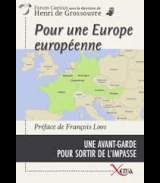 |
Une avant-garde pour préserver et renforcer la souveraineté européenne
Pour une Europe européenne (ed. H. de Grossouvre)
14 sept, 2007
« L’avant-garde européenne n’a de sens et de légitimité que si elle est inspirée par une vision stratégique, visant au renforcement de tous les aspects de la souveraineté européenne. Seul un tel projet pourra contribuer à la préservation d’une ‘certaine idée de l’Europe’ : un acteur géopolitique à part entière capable de garantir notre sécurité, de promouvoir nos valeurs et nos intérêts et de défendre notre modèle économique, social, environnemental et culturel. Pour ce faire, il faut clairement se démarquer des scénarios alternatifs et veiller à ne pas céder aux facilités et aux fausses sirènes.
|
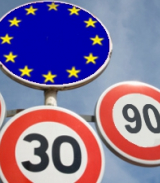 |
Devenir souple pour maintenir l’ensemble: la logique et les pièges du concept d’«intégration différenciée »
The Federalist, XLVIII, 2006, N° 1
28 oct, 2006
Le présent article donne un bref aperçu des aspects terminologiques, historiques, théoriques et politiques des scénarios « d'intégration différenciée ». Il part du fait que si la « flexibilité » est le seul moyen de consolider l'acquis et de poursuivre le projet d'intégration, la différentiation ne mène pas automatiquement à une Europe plus ambitieuse, plus puissante et plus européenne. Afin d’assurer un tel résultat, les pionniers de la flexibilité doivent prêter une attention particulière à deux critères cruciaux.
|
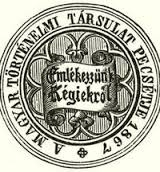 |
L'UE aujourd’hui - diagnostic et scénarios
Európai Unióról és oktatásáról (ed. O. Szabolcs)
13 mai, 2006
Le processus d’intégration européenne est, sans l’ombre d’un doute, l’innovation politique la plus significative du dernier demi-siècle. Parti d’un sentiment de nécessité, il fut guidé par l’espoir que la construction d’une communauté entre pays européens montrera un jour le chemin vers l’organisation du monde du demain. Toutefois, notre sujet ici n’est pas de disserter sur le caractère à la fois brillant, nécessaire et prometteur du projet. Car la crédibilité et la légitimité intérieures et extérieures du processus européen sont aujourd’hui fortement entamées par le gouffre énorme entre la rhétorique médiatico-officielle et la réalité.
|
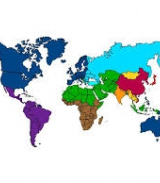 |
La relation « Islam-Occident » : deux mondes ?
Globális biztonsági kihívások (ed. Tarrósy I.-Glied V.)
25 avril, 2006
Lorsque l’on examine les rapports entre civilisations, il faut avant tout clairement distinguer les acteurs étatiques pourvus du droit et de la capacité à l’action politique, et les sphères culturelles d’envergure et de cohésion variables, lesquelles ne le sont pas. Comme l’avait observé l’excellent analyste américain, William Pfaff : « Aucune de ces civilisations, assez arbitrairement définies, n’est ou n’a été, en tant que telle, une entité ou un acteur politique. Les nations agissent. Les gouvernements font des guerres. Mais les civilisations ne sont pas des unités politiques et aucun indice ne prouve qu’elles le deviendront. » Ceci ne signifie nullement, on le verra par la suite, une quelconque sous-estimation des facteurs culturels et identitaires.
|
 |
Une opinion publique largement en faveur d’une Europe européenne
www.lepetitjournal.com Budapest
24 janv, 2006
Selon Eurobaromètre, c’est dans les pays ex-communistes, avec leurs gouvernements soigneusement alignés sur les positions américaines, que l’opinion publique serait le plus favorable à l’Europe de la Défense. Une enquête qui bouscule les idées reçues…
|
 |
L'idée d'avant-garde replacée dans son contexte
intervention Réunion du Forum Carolus, Strasbourg
25 nov, 2005
L’Europe d’aujourd’hui se caractérise par un flou stratégique et identitaire : elle est sans contours géographiques et politiques. Ses frontières géographiques restent toujours imprécises aussi bien vers l’Est et le Sud, que dans la direction de l’Ouest. La souveraineté européenne se retrouve, elle, dans une sorte de zone grise : les Etats-membres abdiquent des pans entiers de leur souveraineté nationale sans qu’il y ait au niveau européen une entité politique prête et capable de défendre la capacité de décision et d’action autonome des Européens.
|
 |
Modèle européen de sécurité
Népszabadság Online
25 oct, 2005
Lâche, impuissant, mollasson, tigre en papier. Voici quelques-uns des adjectifs employés outre-Atlantique pour décrire l’attitude européenne en matière de sécurité. A la limite c’est même compréhensible, si l’on regarde à partir de la spirale auto-alimentée du budget militaire américain (lequel s’élève à près de la moitié des dépenses militaires du monde entier) ou depuis les innombrables gadgets spatiaux dont le degré de fiabilité sur le plan du renseignement est de notoriété publique depuis le conflit en Irak. Mais vu les pieds sur terre, le tableau change quelque peu.
|
 |
L'Union et le peuple
Népszabadság Online
19 oct, 2005
« On ne tombe pas amoureux d’un grand marché » - disait Jacques Delors, ancien président de la Commission européenne. En effet, c’est la leçon la plus importante que les dirigeants de l’Union devraient tirer du désaveu populaire croissant. Car, manifestement, les citoyens voudraient plus que cette Europe mutilée à l'anglo-saxonne
|
 |
L'avant-garde comme nécessité et opportunité
Les Débats du Forum Carolus
13 oct, 2005
"L’Europe intégrée où il n’y aurait pas de politique, se mettrait alors à dépendre de quelqu’un du dehors qui, lui, en aurait une." (Charles de Gaulle, 1961). Il y a une seule question qui vaille dans l’état actuel de l’Union européenne. C’est de savoir si cette crise est enfin « la » crise. La réponse dépend uniquement de la volonté politique des dirigeants des Etats membres, au premier chef desquels la France et l’Allemagne.
|
 |
L'UE, la crise, la solution et nous
Népszabadság Online
20 juin, 2005
L’élargissement de l’Union européenne en 2004 était une erreur. On le savait depuis que les anciens Etats-membres se révélaient incapables de saisir l’occasion qui se présentait avec le projet de confédération européenne de François Mitterrand, et n’avaient pas la volonté politique pour mettre en route aucune autre forme de différenciation sur la base d'ambitions politiques durant la décennie qui a suivi.
|
 |
La souffrance de l'Union et le remède
Népszabadság Online
04 juin, 2005
Il y a une seule question qui vaille dans tout ce chaos autour du traité constitutionnel. C’est de savoir si cette crise est enfin « la » crise. La réponse dépend uniquement de la volonté politique des dirigeants des Etats membres, au premier chef desquels la France et l’Allemagne. La souffrance est le résultat non pas du, mais des élargissements. Les chefs d’Etat et de gouvernement des Six, en 1969 à la Haye, avaient beau dire ne pas marquer leur accord pour l’ouverture des négociations d’adhésion que « pour autant que les Etats candidats acceptent les traités et leurs finalité politiques ».
|
 |
La conscience française de l'Europe
Népszabadság Online
27 mai, 2005
D’après Madelaine Albright, ex-Secrétaire d’Etat américain: « Pour comprendre l’Union européenne on doit être un génie – ou français ». En effet, la France constitue la clef-de-voûte de tout le projet européen. Un état de fait que, paradoxalement, les débats houleux autour du traité dit constitutionnel ne font que renforcer.
|
 |
Les survivants de Mars
ma.hu
09 mai, 2005
Les thèses sur (la prétendue) impuissance de l’Europe et sur la (supposément) bienveillante omnipotence (autoproclamée) des Etats-Unis témoignent d'une profonde ignorance.
|
 |
Le modèle européen de sécurité face aux nouveaux défis
Security under Global Pressure (ed. I. Tarróssy)
01 mars, 2005
L'article définit d'abord les critères principaux de ce que l'on peut appeler "modèle européen de sécurité", pour examiner ensuite le rôle et la pertinence de ce dernier dans la lutte contre le terrorisme.
|
 |
Les nouveautés du traité constitutionnel en matière de politique de sécurité et de défense
Eszmélet n°64. November 2004
01 nov, 2004
La politique de sécurité et de défense est le domaine où le nouveau traité de l’Union, baptisé « Constitution », contient le plus d’infléchissements positifs. Ces nouveautés sont cruciales quel que soit le sort immédiat de la "Constitution": ils démontrent le point d'équilibre délicat entre l'exigence minimale pour un fonctionnement efficace et le degré maximum de volonté politique au niveau des Vingt-Cinq.
|
 |
L'adhésion de la Turquie à l'UE: beaucoup de bruit pour rien
Népszabadság Online
06 oct, 2004
Le rapport mitigé de la Commission sur l’adhésion de la Turquie marquait la fin d’une double imposture. Celle à l’adresse de la Turquie avec le mirage d’un statut d’Etat-membre à part entière (manifestement déjà en tant que candidate elle n’a pas les mêmes droits que les autres). Et celle destinée à l’opinion publique européenne prétendant que les élargissements successifs n’altèrent pas fondamentalement la nature de l’Union. Car c’est précisément ce qu’ils font.
|
 |
Perspectives et limites de l’Union européenne dans la lutte contre le terrorisme
Európai Szemle, 2004/2
01 aout, 2004
Par pure coïncidence, c’est à Madrid, en décembre 1995 que le sommet de l’UE eut lieu où les chefs d’Etat et de gouvernement des Quinze ont affirmé, pour la première fois, au sujet du terrorisme tout ce qu’ils ne pouvaient que répéter huit ans après – à la suite des attentats du 11 mars 2004.
|
 |
Le triangle Paris-Berlin-Londres: une tentative de quadrature du cercle
Journal Francophone de Budapest
03 avril, 2004
Lorsque les dirigeants français, allemand et britannique se sont retrouvés à Berlin pour leur troisième sommet tripartite en moins de six mois, de nombreux partenaires ont exprimé la crainte de l’institutionnalisation d’une sorte de triumvirat.
|
 |
Beaucoup de bruit autour de la pseudo-Constitution européenne
Journal Francophone de Budapest
15 oct, 2003
Tous les commentateurs avisés, qu’ils soient déçus ou soulagés, s’accordent pour dire que le texte qui fera l’objet d’âpres négociations lors de la Conférence intergouvernementale (CIG) lancée le 4 octobre dernier, n’a de Constitution que le nom. Et encore.
|
 |
La présidence italienne de l UE (2) : scénarios et dramaturgie
Journal Francophone de Budapest
03 sept, 2003
« Ne vous inquiétez pas, six mois sont vite passés », c’est en ces termes que Silvio Berlusconi a voulu calmer les députés européens indignés par ses propos et son comportement dès le tout début du semestre de présidence italienne.
|
 |
La présidence italienne de l UE (1) : acteurs et mise en scène
Journal Francophone de Budapest
13 aout, 2003
L’Italie berlusconienne a pris les rênes de l’Union européenne dans un climat d’attente inquiète, où contrastaient un sentiment général exprimé par l’hebdomadaire britannique « The Economist » qui jugeait le président du Conseil italien « inapte à diriger l’Europe » et les déclarations confiantes de celui qui se dit « condamné à toujours gagner ».
|
 |
Le retour aux fondements serait-il un iconoclasme ?
Journal Francophone de Budapest
14 mai, 2003
A l’occasion de l’anniversaire de la déclaration Schuman, il est difficile de ne pas s’interroger sur la portée et la pertinence du discours du salon de l’Horloge par rapport à l’état actuel de la construction européenne.
|
 |
La grande Europe officialisée à Athènes
Journal Francophone de Budapest
23 avril, 2003
Si le Conseil européen d’Athènes n’a rien apporté de fondamentalement nouveau (vu que la décision d’admettre dix nouveaux pays avait été prise à Copenhague et que leur entrée dans l’Union ne deviendra effective que le 1er mai 2004), le choix du site, de même que la présence collective et la prestation solennelle des protagonistes ont incontestablement donné de l’allure à la cérémonie.
|
 |
La remontrance de Chirac : aurait-il vraiment mieux fait de se taire ?
Journal Francophone de Budapest
05 mars, 2003
S’indignant des réprimandes adressées par le président français aux pays candidats – lesquels s’étaient alignés selon lui « trop rapidement » et d’une manière « irresponsable » sur la position américaine au sujet de l’Irak – la plupart des réactions internationales se délectaient à remarquer que c’est plutôt l’auteur de la fameuse phrase qui aurait « manqué une bonne occasion de se taire ».
|
 |
Sans tambours ni trompettes – le très controversé traité de Nice entre en vigueur
Journal Francophone de Budapest
19 févr, 2003
Si l’on en juge par le rythme de plus en plus soutenu auquel les traités européens se succèdent les uns aux autres, on croirait que la perspective de l’élargissement a bien fini par susciter cette prise de conscience que réclamaient ceux qui voulaient consolider la maison européenne avant qu’elle n’accueille d’autres habitants. Par contre, si l’on observe les résultats pour le moins mitigés du traité de Nice – lequel, étant entré en vigueur le 1er février dernier, est le dernier en date –, on n’arrive pas forcément à la même conclusion.
|
 |
Le vieux couple franco-allemand réinventera-t-il la nouvelle Europe ?
Journal Francophone de Budapest
05 févr, 2003
A la lumière d’une remarque acerbe du secrétaire d’Etat américain à la Défense sur la France et l’Allemagne, il convient de revenir sur l’état actuel et les projets d’avenir du couple franco-allemand qui vient de fêter le 40ème anniversaire du Traité de l’Elysée.[1]
|
 |
L'Europe face à la crise irakienne
Journal Francophone de Budapest
22 janv, 2003
En attendant la remise du rapport des inspecteurs de l’ONU en Irak (prévue pour le 27 janvier prochain), un bref aperçu sur l’approche européenne au sujet de la guerre annoncée pourrait mettre en évidence ce qui fait la spécificité de l’UE sur ce dossier d’actualité.
|
 |
Un sommet européen pas comme les autres
Journal Francophone de Budapest
18 déc, 2002
Une fois n’est pas coutume, l’usage – si souvent abusif – du terme « historique » est pleinement et même doublement justifié au sujet du sommet de Copenhague.
|
 |
Au miroir de la Turquie, l'Europe s interroge sur elle-même
Journal Francophone de Budapest
28 nov, 2002
Avec ses quelques phrases exprimant son profond désaccord et ses craintes au sujet de l’adhésion, à terme, de la Turquie à l’Union européenne, Valéry Giscard d’Estaing (président de la Convention chargée de débattre les questions liées à l’avenir de la construction européenne) a jeté non pas un pavé, mais un énorme rocher dans la mare.
|
 |
Retour dans l'arène : l'Allemagne post-électorale et l'Europe
Journal Francophone de Budapest
01 nov, 2002
La reconduction au pouvoir de la coalition de gauche « SPD-Verts » en Allemagne est considérée par beaucoup comme le signal fort d’une inversion de tendance après les succès en chaîne des droites européennes en Espagne, en Autriche, en Italie, au Danemark, au Portugal, au Pays-Bas et en France. Néanmoins, cet impact sur la configuration politique de l’UE mis à part, la victoire – très courte – de l’équipe du chancelier Schröder ne semble pas susciter de réflexions particulières au sujet de la politique européenne de l’ancien nouveau gouvernement allemand.
|
 |
L opinion publique de l'UE et l'élargissement : bombe à retardement
Journal Francophone de Budapest
15 oct, 2002
Paradoxalement, c’est à la suite de l’échec du premier référendum irlandais, en juin 2001, sur la ratification du traité de Nice – rejeté par la population principalement par crainte d’être obligés d’abandonner leur neutralité traditionnelle – que les autorités et les médias européennes se sont pour la première fois sérieusement posé des questions sur l’attitude de l’opinion publique face à l’élargissement qui se prépare.
|
 |
La question irakienne, révélatrice des faiblesses de l'Europe politique
Journal Francophone de Budapest
15 sept, 2002
A quelques mois de la décision historique sur l’adhésion des nouveaux membres, l’actualité internationale, dominée par l’éventualité d’une attaque américaine contre l’Irak, pousse à s’interroger – dans la perspective d’une UE à 25 – sur le dilemme « Europe-espace contre Europe-puissance ».
|
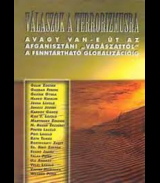 |
La réponse de l'Union européenne aux événements du 11 septembre
Válaszok a terrorizmusra (ed. P. Tálas)
11 sept, 2002
Les spécificités de la situation et de la réaction de l’UE Réponses par domaine d’activité Justice et affaires intérieures Diplomatie, politique étrangère, de sécurité et de défense Assistance humanitaire La sécurité du trafic aérien Mesures dans le domaine économique et financier Protection civile Tendances à long terme Défense collective Flexibilité institutionnelle Fusion inter-piliers Elargissement et approfondissement Dimension méditerranéenne Globalisation durable
|
|
 |
Les plus lus


|



